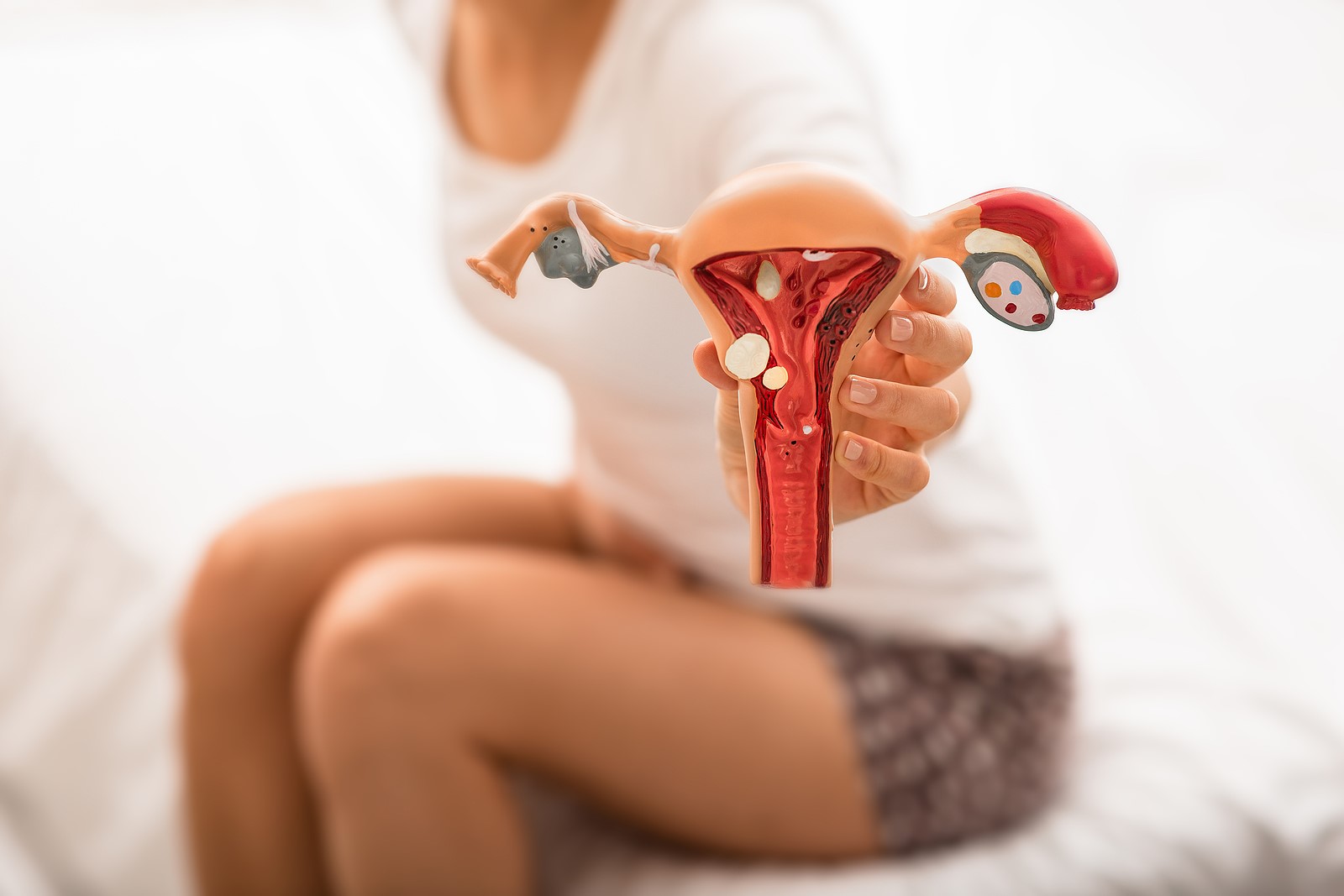Endometriosis is a disorder affecting the reproductive system, in which tissue that should be inside your uterus but is present outside of it is called Endometriosis. More than 11% of women aged 15 to 44, as well as transgender and non-binary individuals with uteruses, are impacted. That amounts to slightly more than one in ten persons.
Endometriosis is the growth of tissue outside the uterus that resembles the endometrium, the lining of the uterus. The pelvic region, which includes the ovaries, fallopian tubes, uterine outer surface, and pelvic cavity lining, is most frequently affected by the tissue, referred to as endometrial implants. It can, however, very rarely spread beyond the pelvic organs. Endometriosis also impacts fertility in different ways.
Causes of Endometriosis.
It is unclear what causes Endometriosis specifically. However, a few potential reasons are as follows:
- Menstruation in reverse: Menstrual blood flows back into the pelvic cavity through the fallopian tubes at this point rather than leaving the body. Endometrial cells from the uterus’ inner lining are present in the blood.
- Transformed cells in the peritoneum: Experts speculate that immunological factors or hormones may contribute to the transformation of peritoneal cells, the cells lining the inside of the abdomen, into cells like those lining the uterus.
- Cells in embryos alter: During puberty, hormones like estrogen can change embryonic cells from their early development stages into growths resembling endometrial tissue.
- Surgical scar aftereffect: When an incision is created in the stomach region during surgery, like a C-section, endometrial cells may adhere to the scar tissue.
- Transport of endometrial cells: Endometrial cells may be transported via the blood vessels or tissue fluid system to different body areas.
- State of the immune system: An immune system malfunction could prevent the body from identifying and eliminating endometrial tissue.
Signs and symptoms of Endometriosis
Typical endometriosis symptoms include:
- Period discomfort: Pelvic pain and cramps can begin days before the menstrual cycle and continue for several days after. You can also experience stomach and lower back aches. Dysmenorrhea is another term for unpleasant periods.
- Pain during intercourse: During or after sexual activity, pain is a common symptom of Endometriosis.
- Urinary or bowel movement pain: These symptoms are more likely to occur before or during a menstrual cycle.
- Excessive bleeding: You may occasionally experience high menstrual flow or bleeding in between cycles.
- Infertility: In some instances, Endometriosis is initially discovered during infertility therapy examinations.
- Other symptoms include bloating, nausea, constipation, diarrhea, and fatigue. It is more likely for these symptoms to occur before or during menstruation.
What are the treatment plans for Endometriosis?
The degree of the illness, the patient’s reproductive objectives, and the intensity of the symptoms all influence the available treatment options. The following are typical methods of treating Endometriosis:
- Painkillers: Nonsteroidal anti-inflammatory over-the-counter medications, including ibuprofen or naproxen, can help reduce pelvic pain and discomfort brought on by Endometriosis.
- Hormonal therapy: To restrict ovulation and lower estrogen levels, which can aid with endometriosis symptoms, hormonal drugs are frequently utilized.
- Progestin medication: Menstrual flow can be decreased by progestin-only contraceptives, such as injections, implants, or intrauterine devices.
- Laparoscopic surgery: A minimally invasive technique wherein the surgeon removes ovarian cysts, scar tissue, and endometrial implants.
- Hysterectomy: Surgical removal of the uterus and perhaps the ovaries may be advised in severe situations where other treatments have failed or for women who have reached the end of their reproductive potential.
- Fertility Treatment: In vitro fertilization is one fertility treatment that women with Endometriosis may want to consider if they are having trouble becoming pregnant. IVF is taking eggs out of the ovaries, fertilizing them in a lab using sperm, and then putting the developing embryos inside the uterus. Infertility treatment in Punjab is available.
Infertility is a widespread problem in males and females; different reasons are responsible for infertility. Visit Dr Sumita Sofat IVF hospital to get appropriate treatment.

